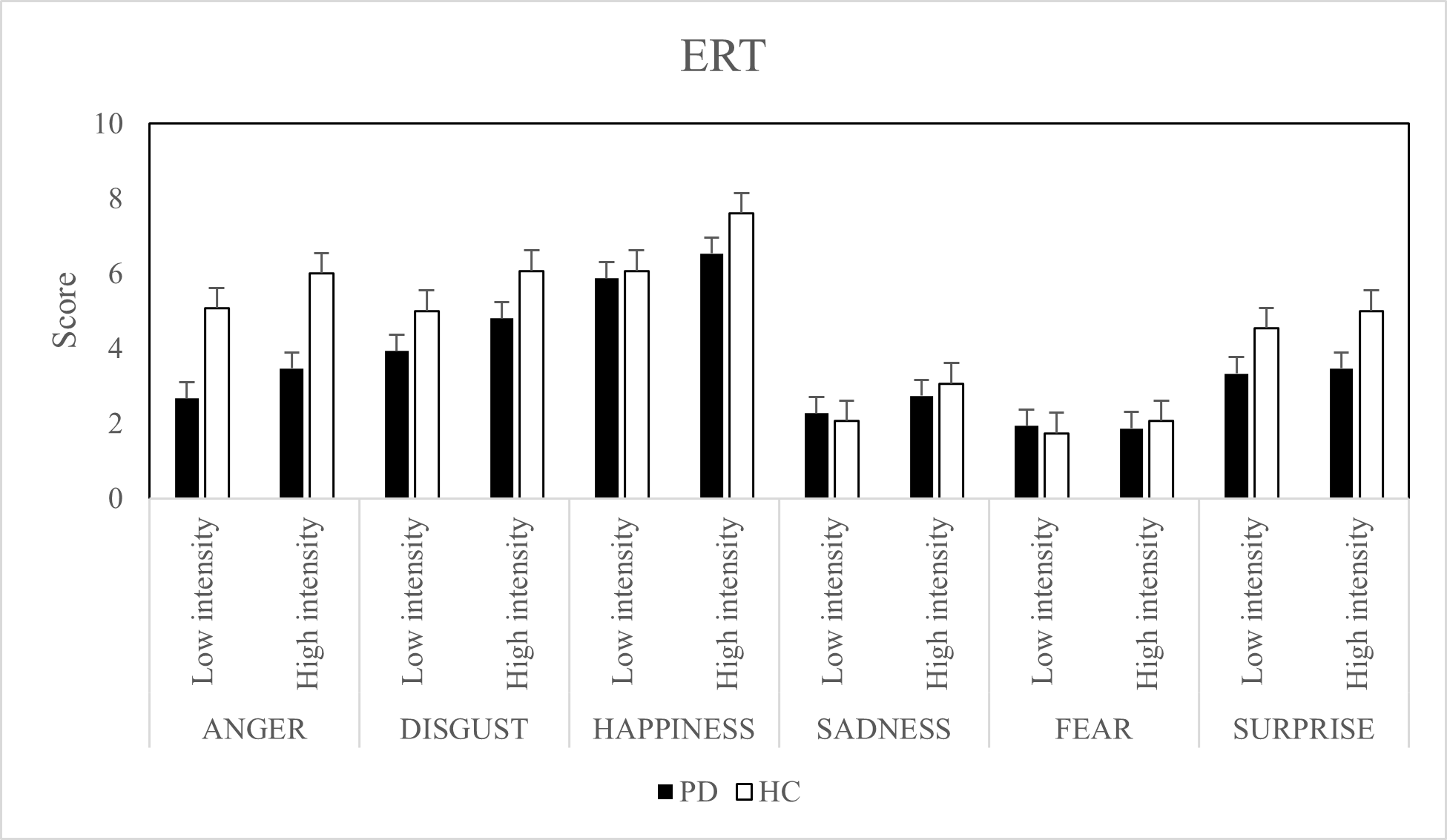Category: Parkinson's Disease: Cognitive functions
Objective: We aimed to explore facial emotion recognition (FER) skills in individuals with Parkinson’s disease (PD) by using a dynamic presentation of emotions across different intensities and to examine the extent to which executive and affective alterations contributed to FER deficits.
Background: The ability to recognize emotions from facial expressions may be impaired in PD. However, it is not fully established whether emotion recognition deficits in PD should be considered as a primary non-motor symptom due to the dopaminergic deficit or as dependent on the executive deficits and affective disturbances commonly present in these patients. There are also methodological factors, such as the level of dynamism and intensity of emotion expressions, that may determine FER. In that sense, some of the contradictions on emotion recognition in PD found in the literature (see Argaud et al., 2018 for a review) might be related to the impact that emotional and executive dysfunctions have in these patients. The current study should therefore contribute to better understand these complex relationships.
Method: Fifteen individuals with PD and 15 healthy controls were assessed on the Emotion Recognition Task (ERT). In addition, they underwent an extensive affective (apathy, depression, anxiety) and neuropsychological assessment focused on executive functioning.
Results: PD patients showed poorer performance on the ERT, specifically on angry expressions, but they benefited from increased intensity as much as controls did. Differences were also found for apathy, depression and executive tests, especially in the inhibition domain. Importantly, differences between groups on the ERT disappeared when controlling for inhibition and the affective symptoms. A significant effect of inhibition dysfunction was also observed on the ERT performance.
Conclusion: Our findings demonstrate the presence of emotion recognition deficits of morphed facial expressions in patients with PD. Moreover, they suggest that inhibition dysfunctions may act as an important factor negatively influencing FER. The present study highlights the complex nature of emotion processing and its relation with emotional-affective and cognitive aspects to provide a better understanding of FER deficits in PD.
References: Argaud, S., Vérin, M., Sauleau, P., & Grandjean, D. (2018). Facial emotion recognition in Parkinson’s disease: A review and new hypotheses. Movement Disorders, 33(4), 554–567. https://doi.org/10.1002/mds.27305
Kessels, R. P. C., Gerritsen, L., Montagne, B., Ackl, N., Diehl, J., & Danek, A. (2007). Recognition of facial expressions of different emotional intensities in patients with frontotemporal lobar degeneration. Behavioural Neurology, 18(1), 31–36. https://doi.org/10.1155/2007/868431
To cite this abstract in AMA style:
A. Siquier, P. Andrés. Facial emotion recognition in Parkinson’s disease: the role of executive and affective domains [abstract]. Mov Disord. 2022; 37 (suppl 2). https://www.mdsabstracts.org/abstract/facial-emotion-recognition-in-parkinsons-disease-the-role-of-executive-and-affective-domains/. Accessed February 6, 2026.« Back to 2022 International Congress
MDS Abstracts - https://www.mdsabstracts.org/abstract/facial-emotion-recognition-in-parkinsons-disease-the-role-of-executive-and-affective-domains/

